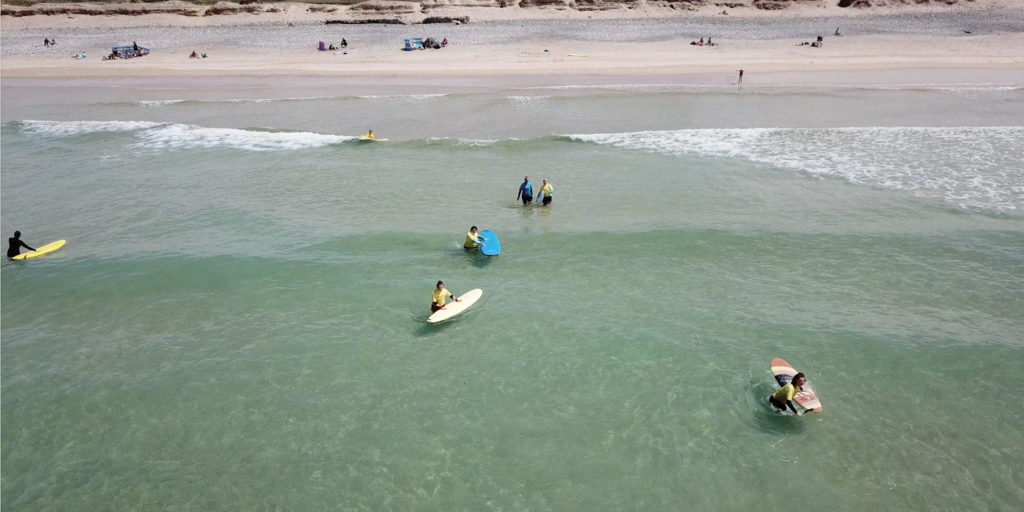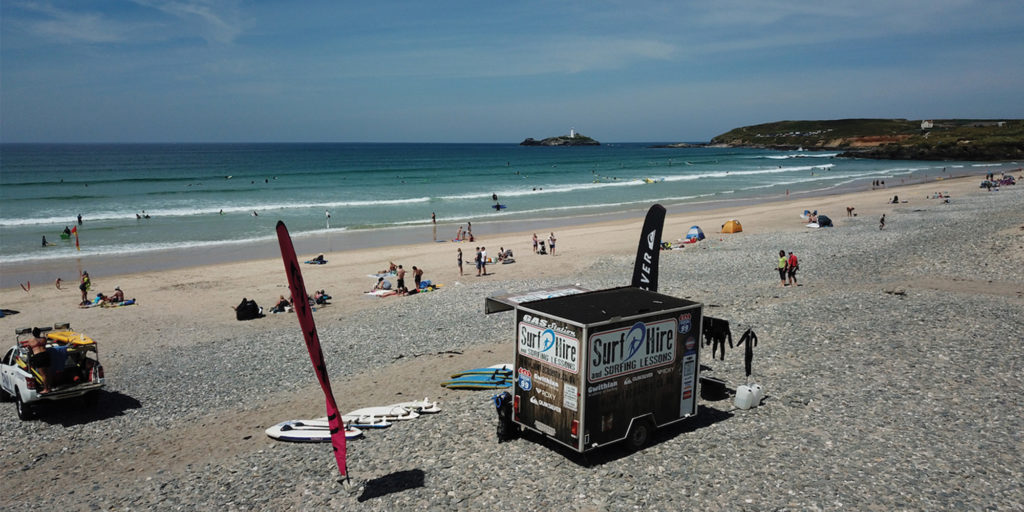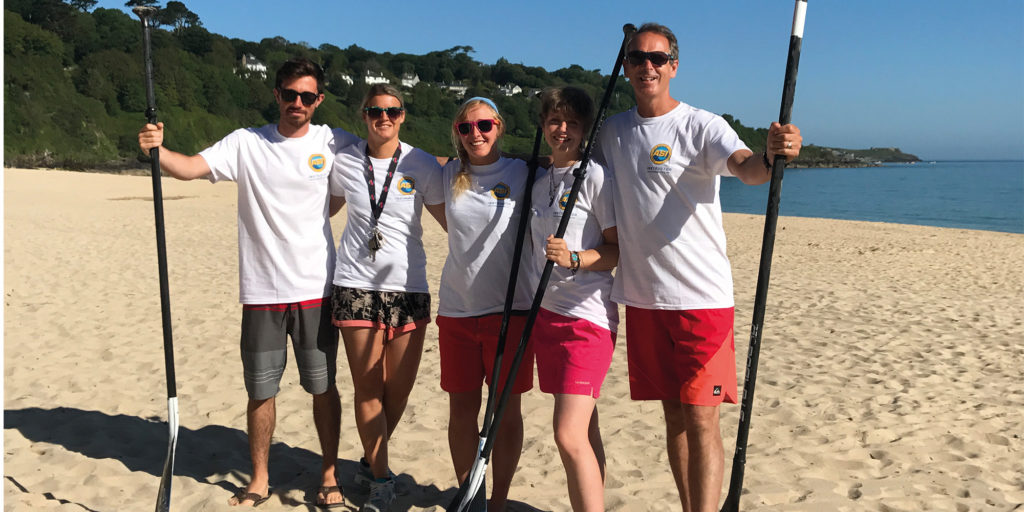Get surf savvy
The Academy of Surfing Instructors (ASI) – the world’s leading surf education training organisation – gives some tips to make your time on the beach not only safer, but more enjoyable too.
Understand beach signs and flags
When hitting the beach, look for beach signs and lifeguard flags for safety information. Red flags mean danger, so don’t enter the water if they’re flying, while red and yellow flags mark safe swimming areas. Black and white flags indicate ‘surfing only’ areas, and orange windsocks show the wind direction. Not all beaches have lifeguards or flags, and where there are lifeguards, they often finish around 5pm, so be sure to stay alert to any possible dangers.
Refer to tide charts
The tide comes in and goes out in approximately 12 hours, at slightly different times. You could find yourself walking on a sandy beach only to find the tide has turned and blocked your way back. Tides can flow very fast, especially near river mouths, so always refer to a tide chart so as not to get caught out!
Watch the wind
Offshore is a wind that blows out to sea from land. Larger crafts like stand up paddle (SUP) boards easily catch the wind and can quickly be carried far from the shore. At lifeguard beaches, you can check the orange windsock.
Rip currents
Rips can be very strong, formed when water from waves surges back out. Such currents can end a long way out from the shoreline. If you’re caught in one, try not to panic; rather than swimming against the rip, swim parallel to it until you’re free of the pull then swim back to shore.
Watch the waves
Beginners should use a safe beginner’s board and only go into waves that are 1 ½ foot high to ensure safety. Waves can be unpredictable. Look out for dumping waves that crash with full force, and never turn your back on them when getting out of the water.
SUP Aware
SUP is fantastic to see Cornwall’s coast and it’s great for fitness. It’s best in calm, flat bays and rivers. Only those with experience should SUP in or near waves.
Care for the environment
Sand dunes are very sensitive to footfall. Never walk, drive or ride a bike on the sand dunes. Stick to the designated paths and trails, and use the beach – not the dunes – for your picnic, being sure to take your rubbish home.
ASI is the world’s leading professional membership organisation and international governing body for instructors, coaches and schools for surfing, SUP and bodyboarding. Based in Bondi Beach, Australia, ASI’s UK operation has been working from Hayle, Cornwall for more than eight years.
KNOW THE SIGNAL
In the water, the help signal is one hand in the air while shouting for help. Remember, never go out on your own! If you’re inexperienced, whether in surfing or stand up paddle boarding, be sure to book a lesson with an ASI accredited surf school or instructor.


